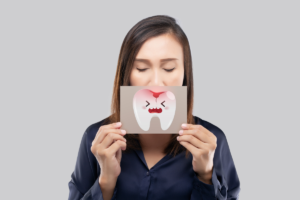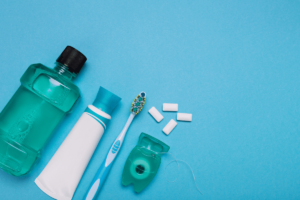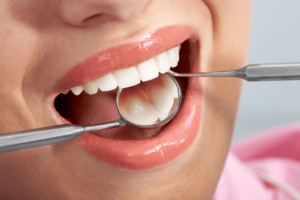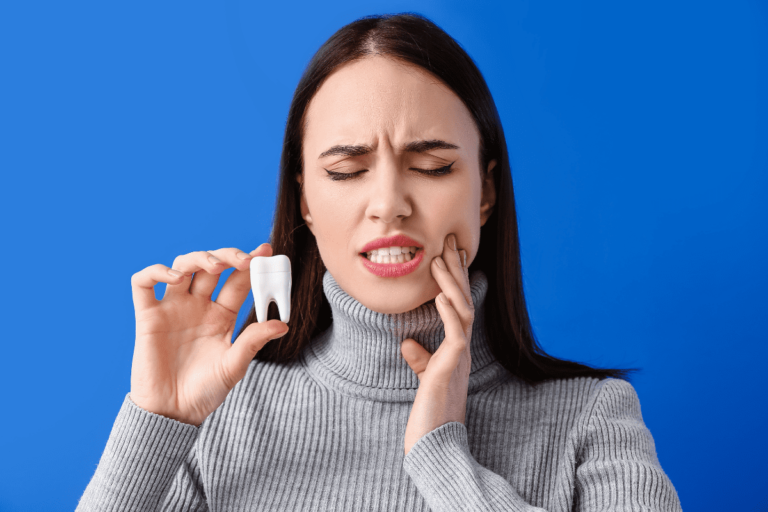Understanding Tooth Sensitivity: Causes and Solutions
Tooth sensitivity is a common dental issue that can cause discomfort and interfere with daily life. At Naples Dental Boutique, we understand the importance of addressing this concern to ensure optimal dental health and overall well-being.
Table of Contents
 What Causes Tooth Sensitivity?
What Causes Tooth Sensitivity?
Enamel Erosion and Gum Recession: One of the primary reasons for tooth sensitivity is the erosion of enamel, the protective outer layer of the tooth, and gum recession, which exposes the sensitive root surface. These conditions can result from poor oral hygiene, acidic foods, tooth grinding (bruxism), or aggressive brushing.
Tooth Decay and Cracked Teeth: Tooth decay and cracks in the teeth can also lead to sensitivity by exposing the inner layers of the tooth where the nerves are located. Dental procedures, such as fillings or crowns, may exacerbate sensitivity if not correctly performed or if there are complications.
Aging and Genetics: As we age, our enamel naturally wears down, increasing the likelihood of sensitivity. Genetics can also play a role in determining enamel thickness and susceptibility to dental issues like sensitivity.
Tooth Whitening Products: While tooth whitening products can enhance the appearance of teeth, they may also contribute to sensitivity, mainly if used excessively or incorrectly.
Poor Oral Hygiene and Toothbrush Abrasion: Neglecting oral hygiene practices can lead to plaque buildup, eroding enamel, and contributing to sensitivity. Additionally, using a toothbrush with stiff bristles or brushing too vigorously can wear down enamel and cause gum recession.
Toothpaste Ingredients: Some toothpaste formulations contain abrasive ingredients or high levels of certain chemicals, which can exacerbate sensitivity in some individuals.
Temperature Sensitivity and Sugar Consumption: Hot or cold foods and beverages can trigger sensitivity in individuals with exposed nerve endings. Furthermore, excessive consumption of sugary foods and drinks can contribute to tooth decay, which may increase sensitivity.
Medical Conditions: Certain conditions, such as acid reflux, eating disorders, or autoimmune diseases, can affect oral health and contribute to tooth sensitivity.
 Addressing Tooth Sensitivity: Solutions and Prevention
Addressing Tooth Sensitivity: Solutions and Prevention
Seek Professional Dental Advice: If you are experiencing tooth sensitivity, it is essential to consult with a dental professional to determine the underlying cause and appropriate treatment plan. They can thoroughly examine, including X-rays, to identify issues and recommend suitable interventions.
Practice Good Oral Hygiene: Maintaining a consistent oral hygiene routine, including brushing twice a day with a soft-bristled toothbrush and fluoride toothpaste, flossing daily, and using mouthwash, can help prevent tooth decay and gum disease, reducing the risk of sensitivity.
Use Toothpaste for Sensitivity: Formulations specifically designed for sensitive teeth contain desensitizing agents to alleviate discomfort. Incorporating these products into your oral care routine can help manage sensitivity over time.
Limit Acidic and Sugary Foods: Minimizing consumption of acidic foods and beverages, such as citrus fruits and sodas, and reducing sugar intake can help protect enamel and prevent tooth decay, reducing sensitivity.
Address Bruxism: If you grind or clench your teeth, wearing a mouthguard at night can help protect your teeth from damage and alleviate sensitivity associated with bruxism.
Avoid Overuse of Whitening Products: Follow the instructions provided with tooth whitening products carefully, and avoid overuse to prevent sensitivity and enamel erosion.
Consider Dental Treatments: In some cases, dental treatments such as fillings, crowns, or bonding may be necessary to address underlying issues contributing to sensitivity and restore dental health.
Q&A: Common Questions About Tooth Sensitivity
Q: Can tooth sensitivity be cured completely? A: While tooth sensitivity can often be managed effectively with proper dental care and lifestyle adjustments, it may not be completely cured, especially if the underlying cause is irreversible damage to the tooth structure.
Q: Are there any home remedies for tooth sensitivity? A: While some home remedies may provide temporary relief, such as using desensitizing toothpaste or applying a fluoride gel, consulting with a dentist for a comprehensive assessment and personalized treatment plan is essential.
Q: Is tooth sensitivity a sign of a more serious dental problem? A: In some cases, tooth sensitivity can indicate underlying dental issues such as decay, gum disease, or cracked teeth. It is crucial to address sensitivity promptly to prevent further damage and complications.
Q: Can I prevent tooth sensitivity? A: Yes, practicing good oral hygiene, avoiding acidic and sugary foods, using a soft-bristled toothbrush, wearing a mouthguard if you grind your teeth, and seeking regular dental check-ups can help prevent tooth sensitivity.
Q: When should I see a dentist about tooth sensitivity? A: If you experience persistent or severe tooth sensitivity, you must schedule a dental appointment promptly. Your dentist can evaluate your oral health, identify underlying issues, and recommend appropriate treatment options.
 Take Control of Your Dental Health
Take Control of Your Dental Health
Don’t let tooth sensitivity interfere with your daily life. Take proactive steps to address the underlying causes and prevent future discomfort. Schedule a consultation with Naples Dental Boutique to receive personalized advice and treatment tailored to your needs. Your smile deserves the best care possible!


